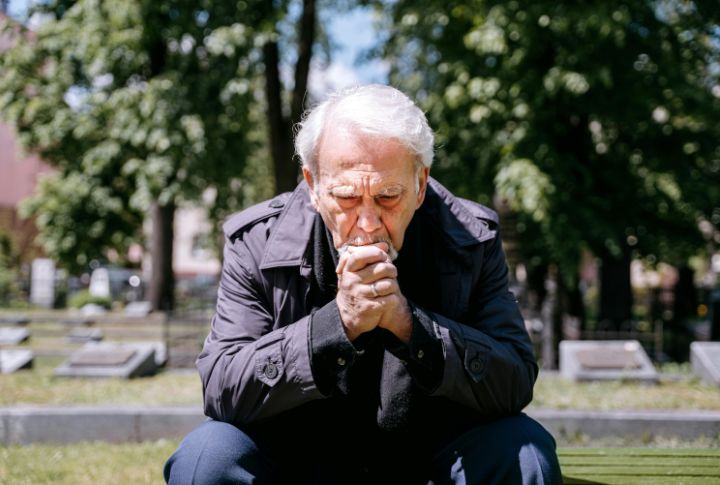
Loneliness has a way of hiding in plain sight, usually hidden in ordinary conversations. People might drop hints without even realizing it, and spotting them takes a keen eye. The focus is on noticing and understanding what someone is feeling. So if you think someone’s lonely, here are 20 phrases that could reveal the truth.
“I Don’t Want To Bother Anyone”

It usually signals that someone feels unwanted. It’s their shield against admitting they need connection. Others may misread it as independence. Here’s what helps: start a small, casual chat. Even a few minutes of friendly talk can ease loneliness more than expected.
“I’m Fine, Really”

When someone says, “I’m fine, really,” chances are they’re not. This is a quick way to avoid discussing struggles. The irony? Using it often leaves people feeling worse. What seems small is actually widespread—this short phrase is one of the most common cover-ups spoken around the world today.
“Nobody Understands Me”

“Nobody understands me” isn’t usually shouted—it’s whispered. Behind the words lies a sense of emotional isolation, making one feel like no one can truly relate. That loneliness can weigh on a person, and sometimes music or creative outlets offer a bit of relief.
“I Just Stay Busy”

The phrase “I just stay busy” reflects more than productivity. This serves as a defense against loneliness, a way to fill space that feels empty. Workaholics commonly rely on this line to explain their pace. Today, many scroll endlessly online to keep busy; however, it only distracts and doesn’t give a meaningful connection.
“I Don’t Need Anyone”

You might hear someone say this and think they’re just being tough. But often, there’s something deeper going on, hurt they’re trying to hide. Humans crave connection; it’s basic, like food or water. And if someone stays isolated too long, it can actually take a real toll on their health.
“Everyone’s Busy But Me”

That thought usually comes from loneliness. Social media makes it worse, constantly showing other people’s lives moving at full speed. The truth is, people around them might be prioritizing other things. So, feeling left out usually comes from perception.
“I’ll Be Okay Alone”

“I’ll be okay alone” is often whispered as comfort, though it hides the truth of not being okay. The words carry resignation rather than confidence. Here’s something interesting—those who live alone for long stretches dream more vividly. But saying this too frequently can make loneliness feel acceptable.
“No One Ever Calls Me”

Hearing someone say, “No one ever calls me,” usually comes from feeling lonely. It’s less about the phone itself and more about the missing connection. Deep down, it’s a wish for someone to care enough to reach out. Isolation can make even a missed call feel heavy, amplifying that quiet ache.
“I Just Want To Stay In”

Staying in can sound cozy, yet it typically hides something deeper. It can be an attempt to avoid rejection before it happens. The decision quietly reinforces isolation. On these nights, comfort foods and binge-watching become common. These habits can quickly disrupt healthy sleep.
“Nobody Would Notice If I Wasn’t Around”

It sounds harsh, but usually it’s the emptiness talking. They feel invisible, like their presence doesn’t matter. The good news is that small gestures, like helping them, sending a text, or just showing you care, can make them feel seen again.
“I’ll Figure It Out Myself”

“I’ll figure it out myself” shows an underlying reluctance to ask for help. While it signals independence, seeking support can strengthen connections with others. This line is particularly common among highly self-reliant individuals who value their autonomy and prefer to handle challenges without outside assistance.
“I Don’t Want To Be A Burden”

Behind the phrase, “I don’t want to be a burden,” is a deeper message: “I’m scared my presence is troublesome.” People who struggle silently usually lean on it. Older adults repeat it the most. In reality, being asked for help usually makes people feel valued rather than like they’re causing trouble.
“I Just Need Some Space”

People say, “I just need some space,” as if they’re craving rest, but it frequently means they’re pulling back emotionally. It can mask hesitation to connect. In small amounts, solitude boosts creativity and clarity. Left unchecked, that same distance can grow heavy, feeding emptiness instead of relieving it.
“I’m Always The One Reaching Out”

This often comes from feeling lonely and thinking the effort isn’t shared. These people start hesitating to send messages, worried about being disappointed, and sometimes even delete them. The truth is, even if others are making an effort, the lonely ones fail to notice it.
“I Don’t Fit In Anywhere”

“I don’t fit in anywhere” typically comes from deep discouragement. The words reveal the pain of exclusion and a feeling that no place truly feels like home. That stress can even affect the brain in ways similar to physical pain. Getting involved in social clubs can help ease that sense of isolation over time.
“I’m Always Left Out”

Sometimes, it’s more than frustration. Constantly being alone allows deeper loneliness to creep in quietly. Being skipped in texts, missing small jokes, or being overlooked in conversations all add up. Over time, the fear of rejection makes even reaching out feel risky.
“Nobody Really Cares”

Saying, “Nobody really cares,” is a way of showing how heavy loneliness feels. This reflects feeling invisible, like no one notices or values you. Thankfully, a simple act of thoughtfulness can shift that perspective quickly. For some, gifts and pets can make things better.
“I’ll Be Out Of Your Way”

It sounds polite, but it hides a fear: The person worries that their presence isn’t appreciated, even if that’s not the case. Offering reassurance, a smile, or simply acknowledging them helps instantly ease those anxious, self-doubting thoughts.
“It Doesn’t Matter Anymore”

It points to emotional resignation, like giving up on connection and stepping back from others. Surprisingly, people who keep trying socially bounce back faster. Small personal rituals, like writing or short walks, can also reignite hope and remind them that reaching out still helps.
“I Talk, But No One Really Listens”

This phrase carries a quiet kind of heartbreak. It’s about being surrounded by sound that never turns into connection. People who say this often feel like their words fall flat, like they’re speaking into a void. What helps? Genuine attention. Eye contact. Because sometimes, being truly listened to is more healing than any advice.

